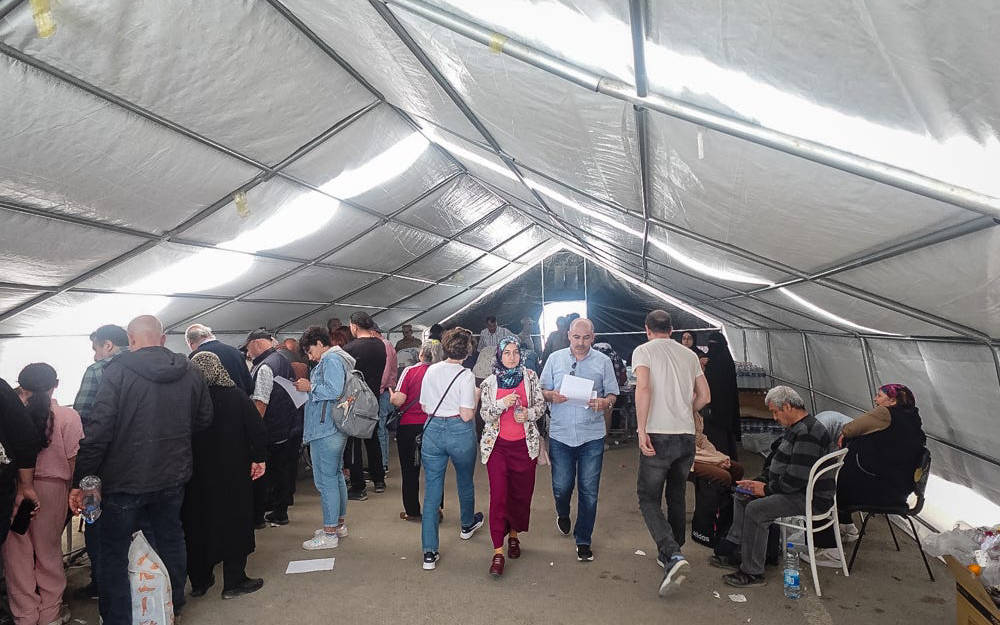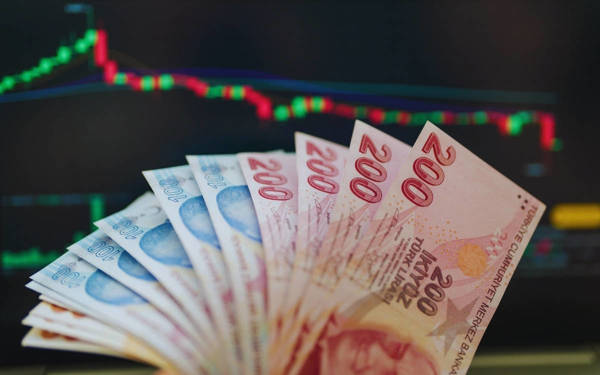Click to read the article in Turkish
Businessperson Ali Osman Atak was arrested on charges of drug smuggling. He is not a very well-known person, but he was the chairperson of the Turkish-American Business Association, an employers' organization that can be considered strategic.
He must have good relations with the state as he was also the deputy chairperson of an association that has a strange name like All Bureaucrats and Businessmen Social Solidarity Association (TÜMBİAD).
In fact, his good relations with the state are understood from his photographs with rulers who control almost every area of the country such as the President, the Interior Minister, the Foreign Minister, a former Prime Minister and Transport Minister, a former Minister of Treasury and Finance, and the Chair of the Union of Chambers.
Mafia states
People in state administrations being seen together with criminal types in one way or another is found very odd and causes serious reactions in some countries. These are the countries that are described as civilized, democratic, and developed countries in the world. Revelations of such relationships embarrass people and caused various consequences, from resignation to suicide, according to the culture of the country.
On the other hand, in some countries, such relationships are not found too odd or not dwelled upon too much. A typical example in this regard is Colombia, where drug trade has a significant share in the country's economy.
It is known in Colombia that the mafia and politicians have close relations. Escobar, who bought lawmakers and ministers and even designed the prison where he was to serve his time, is world famous.
Some of these states get a reputation as mafia states. Countries such as Colombia, Albania, Kosovo and Karadağ and some Caribbean islands happen to be mentioned this way. And some countries are defined as mafia states for certain periods; like the Noriega-era Panama or the Hernández-era Honduras.
In fact, the mafia has an organizational structure that operates with one hand in the state and the other hand in the free market. The tighter its connections with the state, the more it shapes the market; the stronger it is in the market, the more it controls politicians and bureaucrats.
It consolidates its power with transactions such as privatizations, public tenders, licenses and concessions. It directs these processes by establishing partnerships with public officials, bribing, threatening and, if none is enough, by using violence.
For this reason, the mafia gaining strength in a country is not regarded as an issue related to some illegal groups independent of the state, but causes the qualities of the state to be questioned.
Relationships raising suspicion
Because of its practices in recent years, Turkey is on a critical point. The International Financial Action Task Force (FATF), of which it is one of the founders, put Turkey on the gray list in 2021. It removed it from the list in 2014. However, it put it on the last again in 2021 because of the inadequacy of money laundering and combating the financing of terrorism.
There are several reasons why the country is under international scrutiny for a reputation-damaging issue like money laundering. Chief among these is ensuring the money comes into the country and legalized without asking how it was obtained — that is, regardless of whether it is black money or not — under the name of wealth amnesty. In the last 20 years, Turkey did this over and over again.
The chairperson of a government partner party in a country referring to a mafia boss as "my comrade" is alone enough to doubt that country. And this happened in this country. As the Grey Wolves mafia, which was strengthened during the September 12 [1980 coup, TN] period and whose notoriety extended from South America to Asia, Devlet Bahçeli openly embraced Alaattin Çakıcı and ensured his release from prison.
As if it wasn't enough, a former General Director of Security, a former Justice Minister, and former Interior Minister Mehmet Ağar posed with gangsters and swaggered. On top of all, the new Interior Minister got into an online argument with a purged mafia boss about who "bamboozled" whom. It is hard to say that such a state structure is assuring.
Not only the impression taken from statesmen and gangsters, but also numerical data is sufficient to be worried about the power of the mafia. According to the United Nations Office on Drugs and Crime (UNODC) data, between 2012 and 2019, the amount of heroin seized in Turkey increased seven times, marijuana (weed) increased 24 times, ecstasy increased 84 times, and cocaine increased 186 times. No data is available after 2019.
The Interior Ministry is trying to show these numbers as a success in combating smuggling. However, these numbers are the indicators of the extraordinary increase in the volume of drugs entering the country. In 2019, the amount of marijuana seized in Colombia was three times higher than in Turkey and in Mexico is three and a half times higher than in Turkey. In the same year, the amount of cocaine seized in Mexico was eight times higher than in Turkey and in Colombia was 251 times higher than in Turkey.
No reasonable person regards Colombia or Mexico as countries successful in the fight against drugs. The amount of drugs seized in both countres is much higher than in Turkey. Drugs seized at customs don't show that the fight against drugs is good in Turkey, but the things are getting worse and worse.
Net errors and omissions
One of the reasons why data is viewed with suspicion in Turkey is the item of net errors and omissions in the balance of payments. Net errors and omissions exist in the balance of payments of all countries.
It is caused by measurement errors, false declarations, movement of goods subject to foreign trade and payments made in different periods. For these reasons, a reasonable level of net errors and omissions in the balance of payments are expected.
Net errors and omissions exceeding a reasonable level shows that there is an illegal and unexplained resource inflow to or outflow from the country. Although it is not easy to define a reasonable level, it may be explanatory to state that net errors and omissions exceeded the level of 2 billion dollars only once, in 1995, before the rule of the Justice and Development Party (AKP).
Indeed, when AKP came to power in 2002, net errors and omissions were at the level of -758 million dollars. It immediately rose to 4.5 billion dollars in 2003, breaking a record. After fluctuating greatly each year, it reached 12 billion dollars in 2011, and remained generally high in subsequent years. By 2018, it exceeded 22 billion dollars. Provisional estimates for 2021 are around 9 billion dollars.
In case of a change in the ruling power in Turkey, it is highly likely that these issues, which are not discussed now, will be examined. The mafia takes precautions in its own way.
Sedat Peker is already abroad. It was learned that Alaattin Çakıcı settled in Cyprus at the time of the killing of Halil Falyalı. For now, we don't know what politicians and bureaucrats are doing about this, but we can guess that some of them are making preparations not to be detached from the ruling power. (BD/APK/VK)








.jpg)
.jpg)
.jpg)